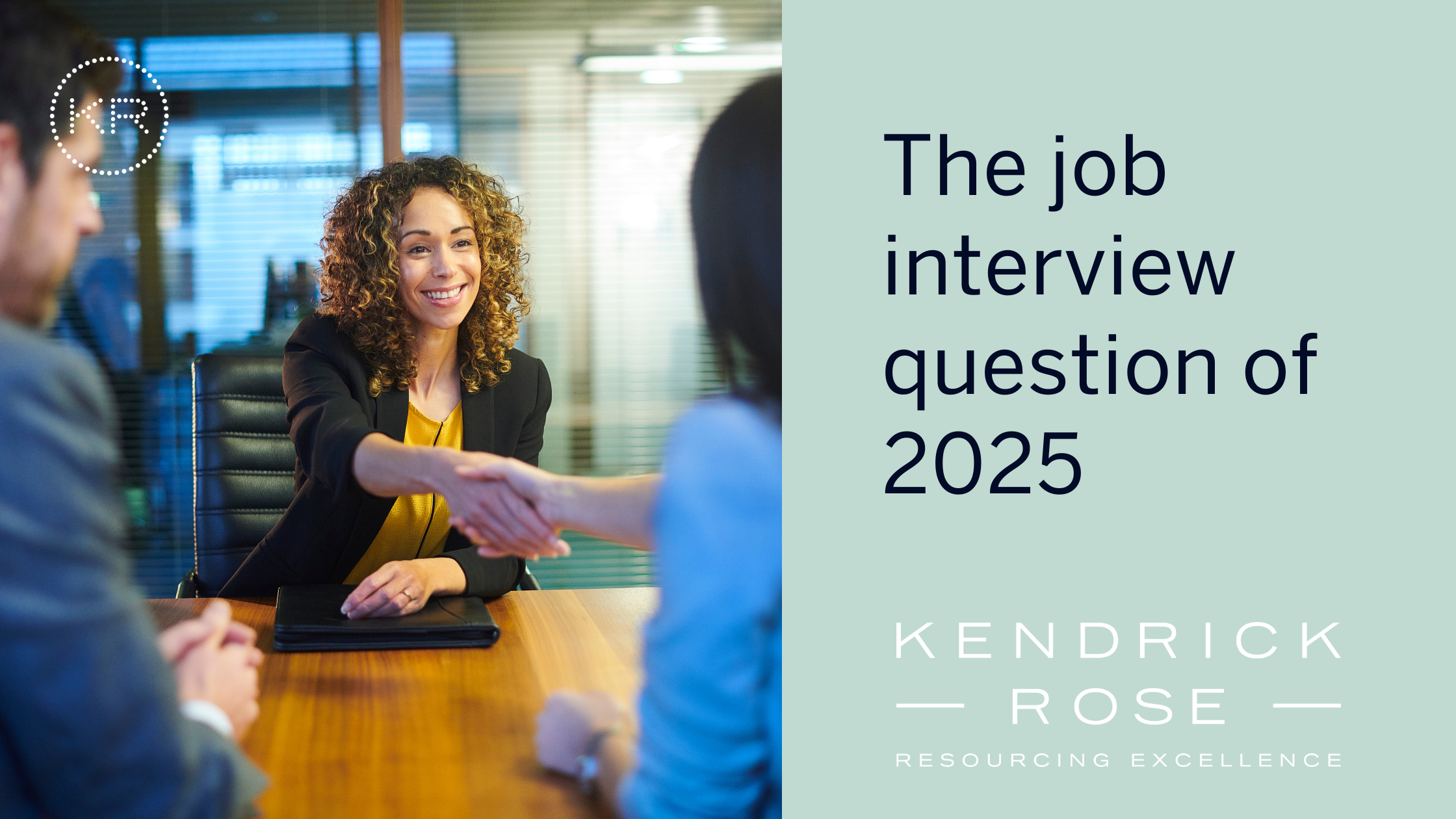The job interview question of 2025
Posted on 20/01/25
Four decades ago, Cadbury’s launched an advert for its Crème Eggs asking: ‘How do you eat yours?’. Today, interviewers are picking up the riff with what might become the question of 2025.
Before chocoholics get too excited, we will drop a spoiler – despite the return of the iconic slogan, the question has nothing to do with confectionary. Rather, it is designed to show a potential employer how you embrace change and make the most of available technology.
According to Linked In’s COO, Daniel Shapero, the question ‘How do you use AI at home or in the workplace?’, demonstrates how comfortable a candidate is with AI, a key point for organisations as they become increasingly AI-centric. Shapero predicts roles like ‘Chief AI Officer’ will be the hottest job title at executive level, with jobs requiring AI skills expanding through all levels of an organisation. This trend is being echoed to a certain degree in Jersey as Shelley Kendrick, Managing Director, Kendrick Rose, explains.
“A few years ago, familiarity with AI may have only been expected for tech roles. Now it affects all kinds of jobs, in all kinds of organisations. Advances in AI are happening so quickly businesses may not even know what applications will be relevant for them in a few months, let alone a year’s time. This is why for most jobs that are going to require staff to use AI, i.e, virtually all financial and professional services roles, it is increasingly important to recruit for flexibility and openness around new technologies rather than experience using existing systems.”
The broad scope of the question recognises the gap between use of AI in the home and workplace that has potentially widened since Chat GPT exploded into existence in 2022. This gap is illustrated in a survey by Deloitte in 2023 which suggested that while 26% of people in the UK had used generative AI, 70% of these were applying it for personal use.
Shelley said: “Anyone with a smart phone these days has the possibility to use AI, indeed, many of us are already using it in everyday life without even realising it. What employers want to see is how smart you are at making these tools work for you, as someone who adopts new technologies in their personal lives won’t be afraid of using it and finding new ways to use it to improve their working lives.”
A report for the Department for Digital, Culture, Media & Sport (DCMS) to model and report on the current and future use of artificial intelligence (AI) by UK businesses in 2022 estimated an average of 15% of UK businesses had already adopted at least one AI technology. However, adoption rates varied greatly, from 11.5% for health and retail, to 29.5% for IT and communications. The report predicted that by 2025 an average of 22.7% of UK businesses would use AI, rising to 34.8% by 2040.
Shelley said: “Predictions around adoption of AI by businesses from a few years back fail to take account of the speed AI has developed since the applications began being used by mass consumers. The feedback from early adopters allowed the AI to become easier to use and more relevant for more people.”
While finding employees who are comfortable with AI may be new, recruiting talent that is comfortable with change isn’t.
Research by Linked In from October 2024 found 64% of professionals around the world feel ‘overwhelmed’ by the rapid pace of change in their workplace, with 68% looking for more support. Integrating artificial intelligence into daily work is listed in the top three challenges facing professionals as their jobs change with 27% citing it as their biggest challenge. However, with 25% of employees saying managing multi-generational teams is their prime concern and 30% worrying about proving they can work from home successfully as firms bring teams back to the office, AI is just part of the problem.
Shelley said: “Employers want staff who are resilient. That isn’t new. Organisations today have more sophisticated support programmes for employees, with more wellness initiatives than you could have dreamt of a few years back. However, businesses have changed. There are fewer ‘mid-level managers’ to coach new employees, and removing mid-level roles also makes the jump from being an operator to a leader even bigger. Add in a new generation of employees during the pandemic who began work without the camaraderie of colleagues to discuss things with informally, and you can see why people are not necessarily coping so well.”
So, what is the answer? We can’t halt change, but with the right approach we may be able to feel more in control – taking actions that impact what happens, rather than feeling change is happening around us, or to us.
Shelley said: “Adopting a growth mindset means viewing change as an opportunity to do something differently, to learn and to grow – not just for our careers, but as individuals. We are all responsible for keeping up with developments in our industries, and if we do, we will see the direction things are going and change won’t come as a surprise. As always, we would recommend taking advantage of courses and training on offer from an employer, or other opportunities to develop skills such as volunteering, coaching, or serving on committees.”
While few could have predicted the popularity and longevity of the Crème Egg, this little piece of confectionary has not been insulated from change. Reformulated to deal with rising costs of materials, made first by Fry’s, then Cadbury’s, then Mondalez. The world of work is infinitely more complicated than the world of chocolate, yet, if we ask ourselves the right questions and crack on with the challenges, career success may taste even sweeter.

“Anyone with a smart phone these days has the possibility to use AI, indeed, many of us are already using it in everyday life without even realising it. What employers want to see is how smart you are at making these tools work for you, as someone who adopts new technologies in their personal lives won’t be afraid of using it and finding new ways to use it to improve their working lives.” - Shelley Kendrick, Managing Director, Kendrick Rose
